A conversation with Silas Blak
Silas Blak‘s music and cerebral approach on the mic has been the object of much praise from local music writers and fellow artists since the mid-’90s. In addition to his solo catalog, his collaborative work in the groups Silent Lambs Project and Black Stax are considered integral installments in the 206 rap canon. After releasing his “Cops On My Back” single in August, and generating national buzz, he returns with his new full length Editorials: War Tunes. SMI caught up with Blak to discuss his artistry, music’s role in societal shifts, and the local hip hop scene. Get caught up.
SMI: There’s 22 songs on this album.
Blak: *laughs*
Now most people would say that’s two albums worth of material.
Right.
So why put out a 22-song album?
Because it’s obnoxious.
*Laughs*
Because most people would say, “its two albums, so why do it?” And that’s exactly why I did it. Me and Kjell Nelson spent a year-and-half in the studio and just grinded it out. So why not? I’ve done eps before. I can do the whole four-five song projects thing. But this was my response to people who would say it would be smarter to break up a 22-song project into smaller releases throughout the year. To make them mad like, “Fuck this guy, why did he put so many songs on one project?”
What’s the concept behind Editorial: War Tunes?
Every song is like an inner war. There’s not one brother walking the streets right now that doesn’t have some sort of an internal argument going on.
What’s the most personal song on this album for you?
“A.D.D.,” and “Cops on My Back”. “Cops on My Back” is the song that I made my biggest sacrifice on. Because instead of being aggressive on the hook with the cops – I was thinking that nobody talks about black people getting hurt by the police. So, I wanted to approach it like I was a kid getting bullied by the cops, as opposed to the usual approach.
So you’re with Cabin Games.
Oh, yeah.
As far as the Cabin Games roster goes, I think we need to see The Ghost Ease/Silas Blak collaboration in the future. I’m just saying. *Laughs*
For real, man! Make it happen! That group’s really been my first serious exposure to punk and they’re dope!
Some cats feel that once you get signed to a label, you’re home free. You have a team all around you to do some heavy lifting so you can relax on promotion and just focus on making music. Is that true or is it completely the opposite?
Completely the opposite. You actually have to promote yourself more, because someone else is funding your product. So now you have to ramp up everything. More music, more promotion, more social media, more . . . you. It’s completely the opposite, man. *shakes head*
*Laughs* I notice you’re shaking your head. Is that because you started out when the industry was under the old paradigm and wasn’t subject to social media? Do you kind of wish the music industry was like that still?
Oh, absolutely! Because these dummies would have more hoops to jump through to earn their fame. Like, they just couldn’t get popular right away.
So you feel in this age of direct-to-fan marketing, there’s less quality control?
Yes. Absolutely. Because anybody can go online and release music, and depending on who they’re connected to or what kind of fan base they got building their ego; shit builds and gets popular. So it’s like an illusion where they can make the public believe everybody likes some shit. Like my daughter will tell me that everybody likes a certain song and so I’ll ask her “how many people are we talking about?”
So you feel like it’s easier to have a false perception that can build hype around an artist as opposed to tangible talent?
Exactly. Talent. Like have you grinded through the stages? When your talent meets with another equal talent, it either rises or it stops. And that’s just hip hop. It’s only in hip hop where that happens . . . where you can get crushed on the spot or you can rise on the spot. It’s all up to you.
Is there anything about modern rap that you like that we didn’t necessarily have back in the day?
Oh, yeah. I like the level of cleverness. The understanding of metaphor as it relates to revolutionary thought. Even from cats that can’t seem to put a paragraph together. Like some of these cats out that rhyme like “fuck these bitches, fuck these hoes” . . . will then fuck around and slide out some ill shit. And it’ll be all syncopated in a filthy way. And in that way, the quality control is still always the same. The heat will always bubble to the top.
I recently interviewed Oddisee and he said something interesting. He said that hip hop needs to grow up and that it needs to get away from breaking down the art form to just ‘beats and rhymes.’ Basically saying a lot of indie hip hop artists are too reductive and not being mindful of what constitutes a good ‘song’.
Well the thing is, I don’t know how old Oddisee is, but to me this is the art form where you can do that. It’s ‘Beats, Rhymes and Life.’ So why not measure a cat by his lyrical ability? Why not judge a cat on how sick his beats are?
I’m of two minds about the subject, though I understand what Oddisee is saying. Like… of course you want good songs. But I feel it’s been a strength as well as a crutch that hip hop artists tend to deconstruct the craft in order to understand the individual elements more thoroughly. Much in the same way jazz cats were doing with bebop where Charlie Parker was breaking down the usual melodic lines and fucking with them in order to explore what else could be done. So as a result of this deconstruction, we now have an expanded musical vocabulary on what constitutes as jazz. Hip hop is the same way for me.
I overstand what Oddisee is saying because he’s doing it. So I can’t really argue with that, but hip hop is already grown. It’s 40 years old now. So I don’t think it’s going to grow up anymore. It’s just growing out. It’s like branches. How could it grow up anymore? It’s the backdrop of our nation now. Like, I don’t think Melle Mel and Grandmaster Flash were thinking we were going to ever see a black president. But now we have one, and he’s friends with a rapper from the Marcy projects in Brooklyn who’s looked up to by his voters. Hip hop is in the back drop for all of that.
Back in the sixties, the youth were protesting the status quo. Both the artists and the youth felt that music could change the world. That it could institute more change for the advancement of humanity. Then the ’70s happened. Then the ’80s happened. So on, and so forth. Now it’s 2015. The world isn’t in chaos . . . it is chaos. Seeing what we’ve seen, do you still believe music has the power to change the world?
Absolutely. Yes.
You don’t feel pessimistic about that at all?
Not at all. Music is the universal language. I’ve been to 15-16 different countries. A lot of the same artists make those people dance. In those countries, I couldn’t as easily relate to people . . . except we can sit down and talk about a song and what it means. Even if it’s a song I don’t personally like. But they think that song or that artist is the link to the U.S., so we can build off that. Plus hip hop . . . we have an advantage. We can spread hate or we can spread love. We can make love sound really dope on a song. We can call out “The Oppressor” on a song in a filthy way. And conscious ones or the youth will listen to that and it gives them a directive.
Wise Intelligent of the Poor Righteous Teacher was speaking at a conference several years ago and broke down how he felt that American media will specifically clamp on black conscious thought by highlighting and popularizing the elements that erode and destroy any black progressive movement. It happened with black power movement in the ’60s. It happened again with the “conscious’ rap of the late ’80s early ’90s. What are your thoughts on that?
Oh, I’ll go even further and say that the media will suppress on any conscious thought at all. Not just black people. Conscious people in general. Because conscious thought is like someone throwing a stick in the wheel. And the system doesn’t run the same. When white women get upset, shit changes too. But it’s not always the media’s fault either. But there are also black artists who will leave that kind of conscious music alone when someone comes along with a dollar. And, at that point, that formally ‘conscious’ artist will be about ‘the Sambo’. So we do it to ourselves, too. I’ve sat across the table from a dude offering me a check to do some shit I’m not about, where I’m like “No, I’m not that kind of artist.” But other artists will go ahead and take that check, or that drink or that weed and do what is asked of them.
Let’s talk about your style. The standard emcee completes his rhyme scheme that was set up on the proceeding bar. The couplet always matches typically so that the rhyme scheme is resolved. You don’t do that all the time. Often, you will set up a scheme on the first line, then diverge into another scheme on the following line. But it still works despite being unorthodox. Was that a happy accident you discovered early on?
No. It’s just how I approach the music. I’ve always had something that’s both held me back and propelled me forward as an artist: I never want to sound like someone else. My favorite emcees, my teachers . . . they rhyme like how you’re talking about. But I don’t want to sound like my teachers. Like Rakim is one of my favorites, but I can’t do what he do, so I just said to myself let me do what no one else is doing.
Back in the day, it was taboo to think of anybody over 30 still rapping. Especially if they hadn’t gotten established when they were younger. Do you think that’s no longer an industry taboo?
I think it depends on the individual. It’s a case by case basis. If you’re still writing dope shit, and you’re older, keep going until you run out. Plus, I have more to say now! Before, when I started out, I was just spitting phonics and flexing. Now I know how to put the conversation in the rhythm. The other thing is . . . that wasn’t us that put that thought out there. This whole ‘you shouldn’t rap if you’re 30 and over‘ nonsense. Nobody in the hood thought that initially. So it was the industry that started putting that thought out there.
You’ve been in the local scene for a long time. Since the ’90s era. Is there more camaraderie in the scene now as compared to when you first started out?
No. There was way more camaraderie back then. There is none now. I don’t even know what camaraderie looks like anymore. It’s every man for himself out here. Nowadays, people only call you when they want to do ‘moves’ but they don’t want to build or make moves. They only want to be in the industry so if you’re ‘that dude’ right now, they’re only calling to do a song with you. They don’t want to come to your shows, they don’t want to support you.
It seems to me that, ever since Macklemore blew up, there has been this sense of increased competition in the scene now. Do you feel like that competition is needed in a scene that’s traditionally been considered as “too nice” for a long time?
I love the competition. That’s hip hop. I’m a hip hop baby so that’s the way I look at it. No filler here. Like, red dot to the pad. When I’m rapping onstage, I know there are dudes in the crowd who want to merk me. Then there are others who are scared of me. Then there are others who I inspire or uplift who want to go home and start writing. But I don’t really think the scene’s ever been ‘too nice.’ There’s always been funk in the mix here.
Any cats in the scene you’re feeling right now?
Kung Foo Grip. I think they’re lyrically insane. I watched one of them dudes bust for like seven minutes and it was sick. I like Specs . . . that’s my dude right there. Yirim Seck. I love Grayskul. I have a lot of respect for them. They’re insane. I’m a Wizdumb fan, obviously.
I caught that video you both did. It was dope. You really killed that verse too!
Thanks bro!
Any upcoming projects we need to look forward to coming from you?
We are doing five videos from Editorials that are going to be coming out next year. Brodie Stevens (Redskin) is directing them. So be on the lookout for those.
You can purchase Silas Blak’s new project Editorial War Tunes here.

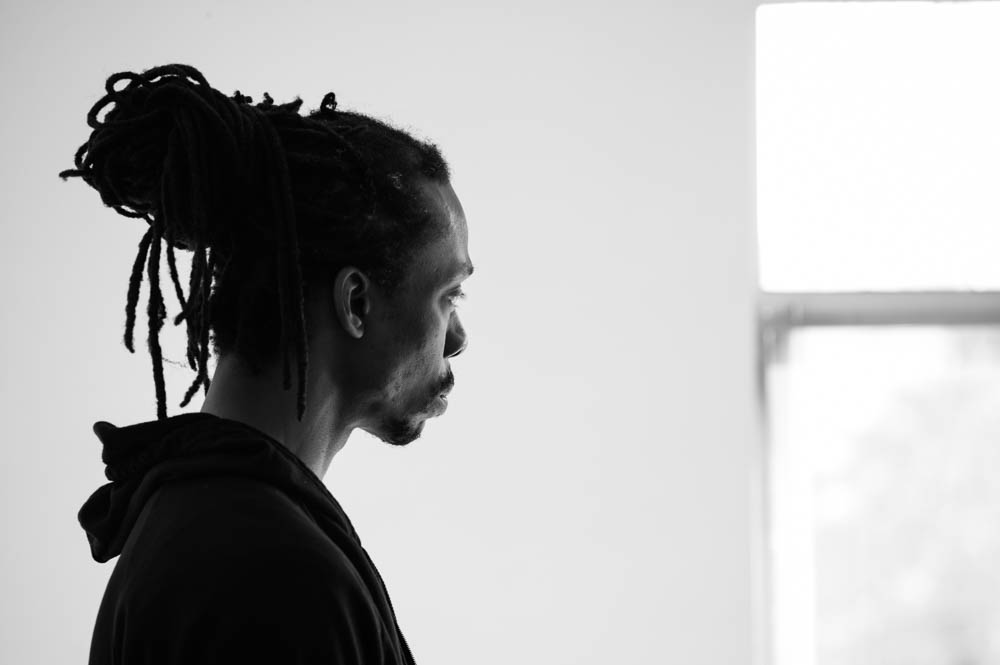
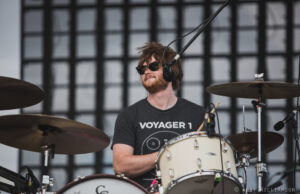
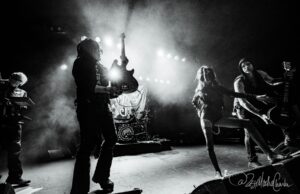
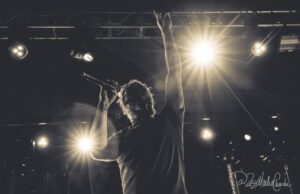
0 comments